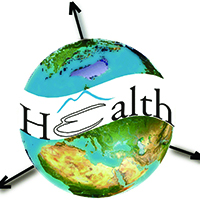Colorectal cancer screening participation: Exploring relationship heterogeneity and scale differences using multiscale geographically weighted regression

All claims expressed in this article are solely those of the authors and do not necessarily represent those of their affiliated organizations, or those of the publisher, the editors and the reviewers. Any product that may be evaluated in this article or claim that may be made by its manufacturer is not guaranteed or endorsed by the publisher.
Accepted: 3 April 2021
Authors
Scotland has an organised colorectal cancer screening programme; however, despite proactively offering screening opportunities free to the at-risk population, and also despite using a screening test which may be completed at home, screening participation levels are unequal. Understanding causal pathways linking participation with other population characteristics may be aided by identifying how relationships between the two patterns vary across different localities, and such knowledge may also inform decisions regarding geographical targeting of screening promotion efforts. In this analysis, models calibrated using multiscale geographically weighted regression enabled the assessment of spatial variations of determinants of screening participation levels. The models were calibrated for localities across west central Scotland (n=409), where participation levels were relatively low, using aggregated individual-level screening records within a two-year window (2009-2011). Area deprivation was found to have a strong negative impact on participation levels across the study area, and ethnic population concentration had a significant impact on male participation levels on localities within Glasgow city. Estimates of local intercepts pointed to a systemic difference in screening participation between the two health board regions in the study area. Overall the results suggest that work to increase screening participation was necessary. They also suggest that barriers to participation could be addressed locally, and that differences between health board regions required further investigation.








